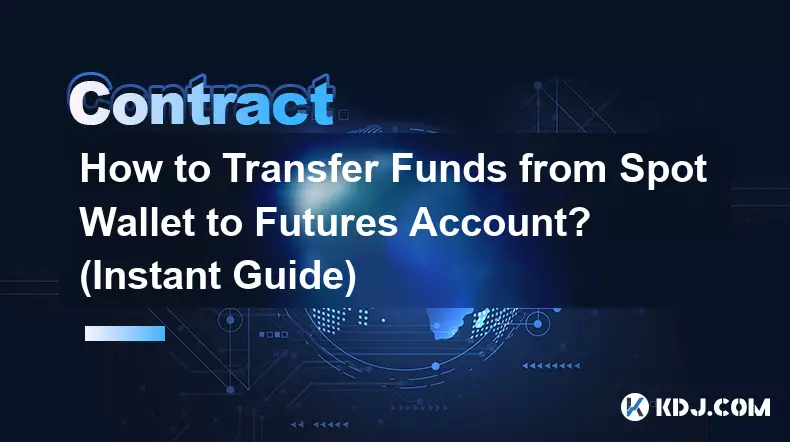-
 bitcoin
bitcoin $87959.907984 USD
1.34% -
 ethereum
ethereum $2920.497338 USD
3.04% -
 tether
tether $0.999775 USD
0.00% -
 xrp
xrp $2.237324 USD
8.12% -
 bnb
bnb $860.243768 USD
0.90% -
 solana
solana $138.089498 USD
5.43% -
 usd-coin
usd-coin $0.999807 USD
0.01% -
 tron
tron $0.272801 USD
-1.53% -
 dogecoin
dogecoin $0.150904 USD
2.96% -
 cardano
cardano $0.421635 USD
1.97% -
 hyperliquid
hyperliquid $32.152445 USD
2.23% -
 bitcoin-cash
bitcoin-cash $533.301069 USD
-1.94% -
 chainlink
chainlink $12.953417 USD
2.68% -
 unus-sed-leo
unus-sed-leo $9.535951 USD
0.73% -
 zcash
zcash $521.483386 USD
-2.87%
Is Coinbase futures regulated?
Coinbase Futures, regulated by the CFTC, let U.S. traders speculate on crypto prices using leverage—but come with risks like liquidation and volatility.
Jul 30, 2025 at 06:36 am

What Are Coinbase Futures?
Coinbase Futures refer to financial instruments that allow traders to speculate on the future price of cryptocurrencies such as Bitcoin and Ethereum. These contracts are offered through Coinbase Derivatives Exchange, a subsidiary of Coinbase Global, Inc. Unlike spot trading—where users buy and sell actual crypto assets—futures trading involves entering into agreements to buy or sell crypto at a predetermined price at a set date in the future. This type of trading is popular among institutional investors and advanced retail traders who want to hedge positions or take advantage of market volatility. The regulation of these instruments is critical for ensuring legal compliance and investor protection.
Which Regulatory Body Oversees Coinbase Futures?
Coinbase Futures are regulated by the Commodity Futures Trading Commission (CFTC), the primary U.S. agency responsible for overseeing derivatives markets, including futures, options, and swaps. The CFTC ensures that exchanges like Coinbase Derivatives adhere to strict standards regarding market integrity, transparency, and customer protection. Coinbase Derivatives Exchange LLC is a Designated Contract Market (DCM) and a Derivatives Clearing Organization (DCO) registered with the CFTC. This dual registration means Coinbase can both list futures contracts and clear them internally, a structure that reduces counterparty risk and increases operational efficiency. Traders must verify that the platform they use is properly registered with the CFTC to avoid unregulated or offshore exchanges.
How Does Coinbase Ensure Compliance with CFTC Rules?
Coinbase implements a multi-layered compliance framework to meet CFTC requirements. This includes:
- Real-time surveillance systems to detect and prevent market manipulation, such as spoofing or wash trading.
- Robust KYC (Know Your Customer) and AML (Anti-Money Laundering) procedures for all users accessing futures products.
- Segregation of customer funds from operational capital to protect traders in case of insolvency.
- Regular audits and reporting to the CFTC, including daily transaction data, risk exposure metrics, and system integrity logs.
- Clear disclosure of risks associated with leveraged trading, including liquidation warnings and margin requirements. These measures ensure that Coinbase Futures operate within a legally compliant and transparent environment, minimizing the risk of regulatory penalties or service suspension.
How to Access Coinbase Futures Legally?
To trade futures on Coinbase legally, users must follow these steps: - Create a Coinbase account and complete identity verification (ID, address proof, and sometimes biometric checks).
- Navigate to Coinbase Advanced Trade or the dedicated futures section within the Coinbase app or website.
- Accept the Futures Terms of Service and Risk Disclosures, which outline leverage limits, fees, and liquidation policies.
- Fund your account with USD or crypto—most futures contracts require collateral in USD Coin (USDC) or fiat USD.
- Place a futures order by selecting the contract (e.g., BTC-USD quarterly futures), setting leverage (e.g., 2x to 10x), and choosing order type (limit, market, or stop-limit). Each step must be completed in sequence to ensure full compliance with U.S. regulatory standards. Attempting to bypass verification or using third-party tools may result in account suspension.
What Risks Are Associated with Regulated Futures Trading?
Even with CFTC oversight, futures trading carries significant risks: - Leverage risk: Using 5x or 10x leverage can amplify losses beyond the initial deposit.
- Liquidation risk: If the market moves against a position, automated liquidation may occur without warning.
- Market volatility: Crypto prices can swing rapidly, triggering margin calls or forced closures.
- Regulatory changes: The CFTC may impose new rules affecting margin requirements or eligible assets.
- Platform downtime: Technical issues during high volatility can prevent timely position management. Traders must understand that regulation does not eliminate risk—it only ensures the rules are enforced fairly.
Frequently Asked Questions
Can non-U.S. residents trade Coinbase Futures?No. Coinbase Futures are currently available only to residents of the United States due to CFTC jurisdiction. Non-U.S. users attempting to access the service may face account restrictions or legal consequences.
Is there a minimum deposit to start trading futures on Coinbase?Yes. Coinbase requires a minimum of $25 USD or equivalent in USDC to open a futures position. This amount may vary depending on the contract size and leverage selected.
How does Coinbase handle liquidations in futures trading?Coinbase uses an automated liquidation engine that monitors margin ratios in real time. If a trader’s equity falls below the maintenance margin, the position is closed at market price. Users receive real-time alerts via email and in-app notifications before liquidation occurs.
Are Coinbase Futures taxable events?h3Yes. Each futures trade—whether profitable or not—is a taxable event in the U.S. Traders must report gains or losses on IRS Form 8949 and Schedule D. Coinbase provides a year-end tax summary for futures activity, but users should consult a tax professional for accurate reporting.
Disclaimer:info@kdj.com
The information provided is not trading advice. kdj.com does not assume any responsibility for any investments made based on the information provided in this article. Cryptocurrencies are highly volatile and it is highly recommended that you invest with caution after thorough research!
If you believe that the content used on this website infringes your copyright, please contact us immediately (info@kdj.com) and we will delete it promptly.
- Nevada Takes Aim: Coinbase's Prediction Markets Face Regulatory Showdown
- 2026-02-04 19:50:02
- Tether Scales Back Multibillion-Dollar Fundraising Amid Investor Pushback, Report Details
- 2026-02-04 18:50:02
- Bitcoin's Big Plunge: Unpacking the Crashing Reasons in the Concrete Jungle
- 2026-02-04 18:55:01
- Golden Trump Statue Becomes Centerpiece of Wild Memecoin Saga
- 2026-02-04 18:50:02
- NYC Buzz: Remittix Presale Sells Out Fast, Eyeing Mega Gains in Remittance Revolution!
- 2026-02-04 18:45:01
- Bitcoin Touches $77K Amidst Hyper Presale Frenzy and $31M Inflow
- 2026-02-04 19:50:02
Related knowledge

How to Use One-Way Mode vs. Hedge Mode in Futures Trading?
Feb 04,2026 at 06:19pm
Understanding One-Way Mode1. One-way mode establishes a single position direction per asset—either long or short—at any given time. 2. Traders cannot ...

How to Transfer Funds from Spot Wallet to Futures Account? (Instant Guide)
Feb 04,2026 at 06:00pm
Understanding Wallet Separation in Crypto Exchanges1. Spot wallets and futures accounts operate as independent financial containers within most centra...

How to close a crypto contract position manually or automatically?
Feb 01,2026 at 11:19pm
Manual Position Closure Process1. Log into the trading platform where the contract is active and navigate to the 'Positions' or 'Open Orders' tab. 2. ...

How to understand the impact of Bitcoin ETFs on crypto contracts?
Feb 01,2026 at 04:19pm
Bitcoin ETFs and Market Liquidity1. Bitcoin ETFs introduce institutional capital directly into the spot market, increasing order book depth and reduci...

How to trade DeFi contracts during the current liquidity surge?
Feb 01,2026 at 07:00am
Understanding Liquidity Dynamics in DeFi Protocols1. Liquidity surges in DeFi are often triggered by coordinated capital inflows from yield farming in...

How to use social trading to copy crypto contract experts?
Feb 02,2026 at 07:40am
Understanding Social Trading Platforms1. Social trading platforms integrate real-time market data with user interaction features, enabling traders to ...

How to Use One-Way Mode vs. Hedge Mode in Futures Trading?
Feb 04,2026 at 06:19pm
Understanding One-Way Mode1. One-way mode establishes a single position direction per asset—either long or short—at any given time. 2. Traders cannot ...

How to Transfer Funds from Spot Wallet to Futures Account? (Instant Guide)
Feb 04,2026 at 06:00pm
Understanding Wallet Separation in Crypto Exchanges1. Spot wallets and futures accounts operate as independent financial containers within most centra...

How to close a crypto contract position manually or automatically?
Feb 01,2026 at 11:19pm
Manual Position Closure Process1. Log into the trading platform where the contract is active and navigate to the 'Positions' or 'Open Orders' tab. 2. ...

How to understand the impact of Bitcoin ETFs on crypto contracts?
Feb 01,2026 at 04:19pm
Bitcoin ETFs and Market Liquidity1. Bitcoin ETFs introduce institutional capital directly into the spot market, increasing order book depth and reduci...

How to trade DeFi contracts during the current liquidity surge?
Feb 01,2026 at 07:00am
Understanding Liquidity Dynamics in DeFi Protocols1. Liquidity surges in DeFi are often triggered by coordinated capital inflows from yield farming in...

How to use social trading to copy crypto contract experts?
Feb 02,2026 at 07:40am
Understanding Social Trading Platforms1. Social trading platforms integrate real-time market data with user interaction features, enabling traders to ...
See all articles










































































